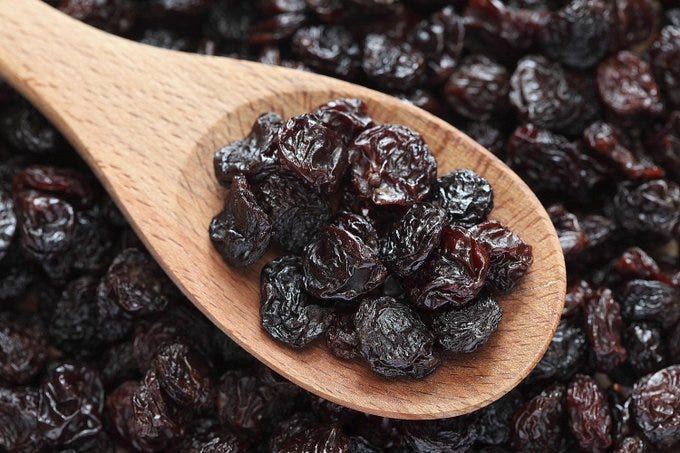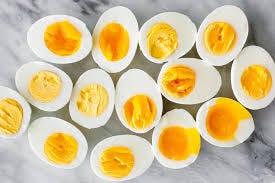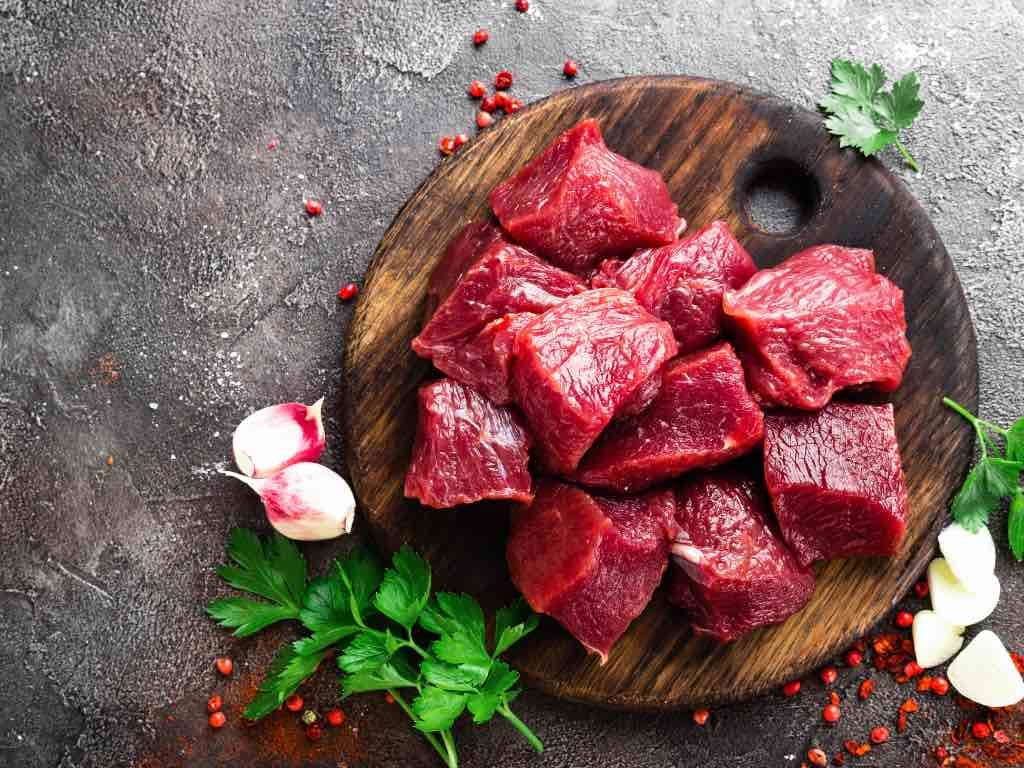13 Foods That Naturally Increase T3, the Beauty Hormone
“A few grams of thyroid hormone can make the difference between an idiot and an Einstein.” - Broda Barnes
I’m going to show you the 13 best T3-boosting food sources that will have the most powerful impact on increasing low T3 levels.
If you’re like me who initially didn’t know I could increase my thyroid function naturally with foods, I’m here to share the good news with you that it’s possible. And that it can make a huge difference.
Side effects of hypothyroidism (low thyroid):
Cold hands and feet and general cold intolerance
Temperatures are below 37C or 98.6F
Heart rate are below 70bpm
Exaggerated stress response – heart rate speeds up like crazy, shaking, sweating, inner tension, nervousness etc.
Hair loss
Losing the outer part of eyebrow
Feeling sluggish and being tired all the time. Can even experience chronic fatigue syndrome (CFS).
Cognitive problems, such as depression, anxiety, slow cognition, little cognitive flexibility, not being open-minded, ridged thinking, etc.
Fat gain and obesity
Metabolic syndrome
Constipation
Diabetes
Bipolar depession
Neurodegenerative disease
Poor Peripheral Circulation (Pale facial skin, cold hands, cold feet etc)
Rapid Premature aging
Migraines
Chronic infection
Cardiovascular disease
Inflammation and chronic illness
Elevated cholesterol and triglycerides
Decreased libido
Edema and Swelling
Muscle aches, frequent cramps, weakness and even fibromyalgia
Slow reflexes. Muscle tranction and relaxation is slow.
the list goes on…
Thyroid is really an amazing hormone to have maximized for overall well-being and reaching the great goals you have set for yourself.
Here we go, please enjoy, my go to foods for boosting thyroid function!
#1 Bone marrow
Bone marrow is extremely rich in vitamin E and K2, higher than any other dietary source.
Vitamin E and Thyroid function
Vitamin E is:
Needed for normal thyroid function, and a deficiency will result in inadequate T3 production as well as less responsiveness to T3 in the cells
An estrogen antagonist in high doses, inhibits the aromatase, and lowers prolactin. Both estrogen and prolactin lower T3 production.
Vitamin K2 for T3
There are multiple animal studies showing that vitamin K (specifically MK-4) boosts T3 production.
#2 Milk
Whole milk is the lifeblood of newborns and it contains all the essential nutrients they need for optimal growth, such as protein, carbs, fats, cholesterol, natural steroids, vitamins (B1, B2, B5, B12) and minerals (zinc, iodine, potassium & selenium).
Research shows that people that consume the most calcium have the highest T3.
Milk is also great for raising low IGF-1 levels.
#3 Oranges
Oranges are rich in vitamin C.
Vitamin C, similar to vitamin E, is an antioxidant and protects T3 from oxidative stress in the thyroid gland. Vitamin C prevents the decline in T3 excess of free radicals.
Another fruit with powerful anti-oxidants that can increase T3 is pomegranate juice.
#4 Beef liver
Beef liver is probably the most nutrient-dense food on the planet. It is an abundant source of highly bioavailable nutrients necessary for T3 production. A few of them include vitamin A, vitamin B6 and copper.
Vitamin A for thyroid
Vitamin A is essential for a healthy hormonal balance as well as good eye, teeth, skin and immune function.
Vitamin A protects the body from the negative effects of estrogen excess which is detrimental for proper thyroid function.
Vitamin B6 for thyroid
Vitamin B6 has been shown to reduce levels of prolactin and TSH (thyroid-stimulating hormone). This effect may be due to it’s ability to decrease excess TRH (thyrotropin-releasing hormone), which is responsible for stimulating the release of TSH and prolactin
#5 Potatoes
Potatoes will help to increase T3 since it’s rich in potassium. Adequate intracellular potassium is essential for normal thyroid function.
Optimal magnesium, calcium, and sodium intake and low PUFA intake help to keep potassium inside the cell. Milk, orange juice, potatoes (and other tubers) are also great sources of potassium.
#6 Rice
Insulinogenic foods, such as rice, are able to increase insulin and IGF-1 and lower cortisol and this potent combo increases T3 production.
Research also found that men who ate more carbs had higher T3 than those on a lower-carb diet.
Other insulinogenic foods, such as sweet potatoes, potatoes, bananas (fried or in smoothies work great) are also a good source of carbs, magnesium, vitamin B6, manganese, vitamin A and potassium, all of which have a positive effect on T4 levels, which can be converted to T3.
#7 Unprocessed Salt
Salt is a potent inhibitor of the catecholamine noradrenaline. Noradrenaline increases both estrogen and lowers T3.
There’s a huge difference between real crystal, sea, or rock salt when compared to the usual “table salt”.
That is, real unrefined and unaltered salts are bit clumpy and they have about 60+ trace minerals in them.
The basic table salt on the other hand? It’s usually got 2. Sodium and chloride. Rest is stripped away.
#8 Raisins
Raisins are a great food that boosts T3 levels for multiple reasons.
Firstly, they’re anti-inflammatory and chock-full of antioxidants, such as anthocyanins, which has been linked to increased T3 and lowered estrogen levels
Secondly, 100 grams of raisins contain ~3 mg of boron, which is a not too popular mineral that has increased T3 levels quite significantly in a few scientific studies
#9 Olive oil
Extra virgin olive oil can be straight on labeled as a thyroid booster.
Olive leaf contains a good amount of oleuropein aglycone, which significantly increased T3 levels and decreased cortisol levels in rats fed a high-protein diet
Olive leaf extract is a great tonic for the kidneys, and it lowers oxidative stress, inflammation and might even aid in fat loss.
#10 Coconut oil
Coconut oil has been shown to improve cognitive abilities, increase thyroid hormones, increase testosterone production, boost metabolic rate, and so forth.
Being mostly saturated fat, it also fits well to the optimal T3 boosting fatty-acid ratios.
Coconut oil also
contains compounds with powerful anti-obesity properties:
“In the l940s, farmers attempted to use cheap coconut oil for fattening their animals, but they found that it made them lean, active and hungry.” - Dr Ray Peat.
#11 Eggs
Eggs are a source of several hormones, such as testosterone, 5α-dihydrotestosterone, androstenedione, progesterone and several thyroid hormones
Eggs are also highly nutritious, containing nearly all of the recognized vitamins (with the exception of vitamin C).
They have good fatty-acid ratios for T3 production. 38% saturated fats, 44% monounsaturated fats, and only 18% polyunsaturated fats.
A minimum of 1-2 eggs daily will be enough to offer good benefits
Just be sure to get high-quality free-range, organic eggs which chickens have not been fed with GMO, mold and pesticide-laden grains.
#12 Grass Fed Butter
Grass-fed butter is an amazing food that boosts T3 and should be the staple in every T3 boosting diet.
It’s a quality source for T3 boosting SFAs, while also containing the fat-soluble vitamins A, E, K2, and D, all of which are linked to increased T3 production.
Just remember that it has to be real butter, and preferably from grass-fed cows. Margarine and other kinds of spread mixes are high PUFA and likely suppress thyroid function.
More on boosting thyroid function here:
The complete guide to maximizing thyroid hormone production to lose weight and look better!
#13 Red meat
Powerful T3 boosting compounds, such as creatine, zinc, iron, vitamin B6 and selenium are found in red meat.
Oysters, liver and kidney are also great sources of selenium, even better than red meat. Selenium is involved in the conversion of T4 to T3, which greatly increases energy.
There you have it, 13 dietary foods to eat more of, keeping your thyroid healthy, strong and well-functioning.
Thank you for reading and enjoy the rest of your day.
If you want to take it further:
T3 optimisation guide: The complete guide to maximizing thyroid hormone production to lose weight and look more attractive - Click here to join and optimise your T3 to change your life.
References:
1.http://pmc.ncbi.nlm.nih.gov/articles/PMC3746228/
2.https://pmc.ncbi.nlm.nih.gov/articles/PMC7353203/
3.https://journals.physiology.org/doi/full/10.1152/ajpendo.00155.2002
4.https://pmc.ncbi.nlm.nih.gov/articles/PMC3133953/
5.https://pubmed.ncbi.nlm.nih.gov/30982439/
6.https://www.researchgate.net/publication/221725399_Serum_copper_as_a_novel_biomarker_for_resistance_to_thyroid_hormone
7.https://pmc.ncbi.nlm.nih.gov/articles/PMC8234807/
8.https://pubmed.ncbi.nlm.nih.gov/7762653/
9.https://pmc.ncbi.nlm.nih.gov/articles/PMC6028657/
10.https://pmc.ncbi.nlm.nih.gov/articles/PMC1807335/
11.https://pmc.ncbi.nlm.nih.gov/articles/PMC3978256/#B6
12.Quignodon L, Legrand C, Allioli N, Guadano-Ferraz A, Bernal J, Samarut J, et al. Thyroid hormone signaling is highly heterogeneous during pre- and postnatal brain development. J Mol Endocrinol (2004) 33:467–76 10.1677/jme.1.01570
13.Sandler B, Webb P, Apriletti JW, Huber BR, Togashi M, Cunha Lima ST, et al. Thyroxine-thyroid hormone receptor interactions. J Biol Chem (2004) 279:55801–8 10.1074/jbc.M410124200
14. https://pubmed.ncbi.nlm.nih.gov/9728485/
15.https://pmc.ncbi.nlm.nih.gov/articles/PMC3063534/#ref4
16.https://www.naturalmedicinejournal.com/journal/nutrient-profile-iodine
17.https://link.springer.com/article/10.1007/BF02784432
18.https://pmc.ncbi.nlm.nih.gov/articles/PMC2715202/
19.Mullur R, Liu Y, Brent G. Thyroid Hormone Regulation of Metabolism. Physiol Rev. 2014;94(2):355-382.
















Hunt animals, and drink their blood. That is the best food.
This was so practical to implement, thank you!